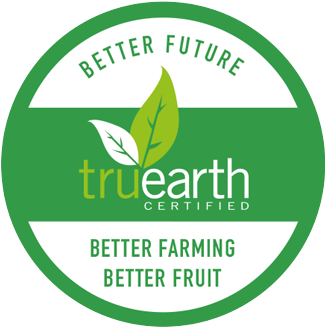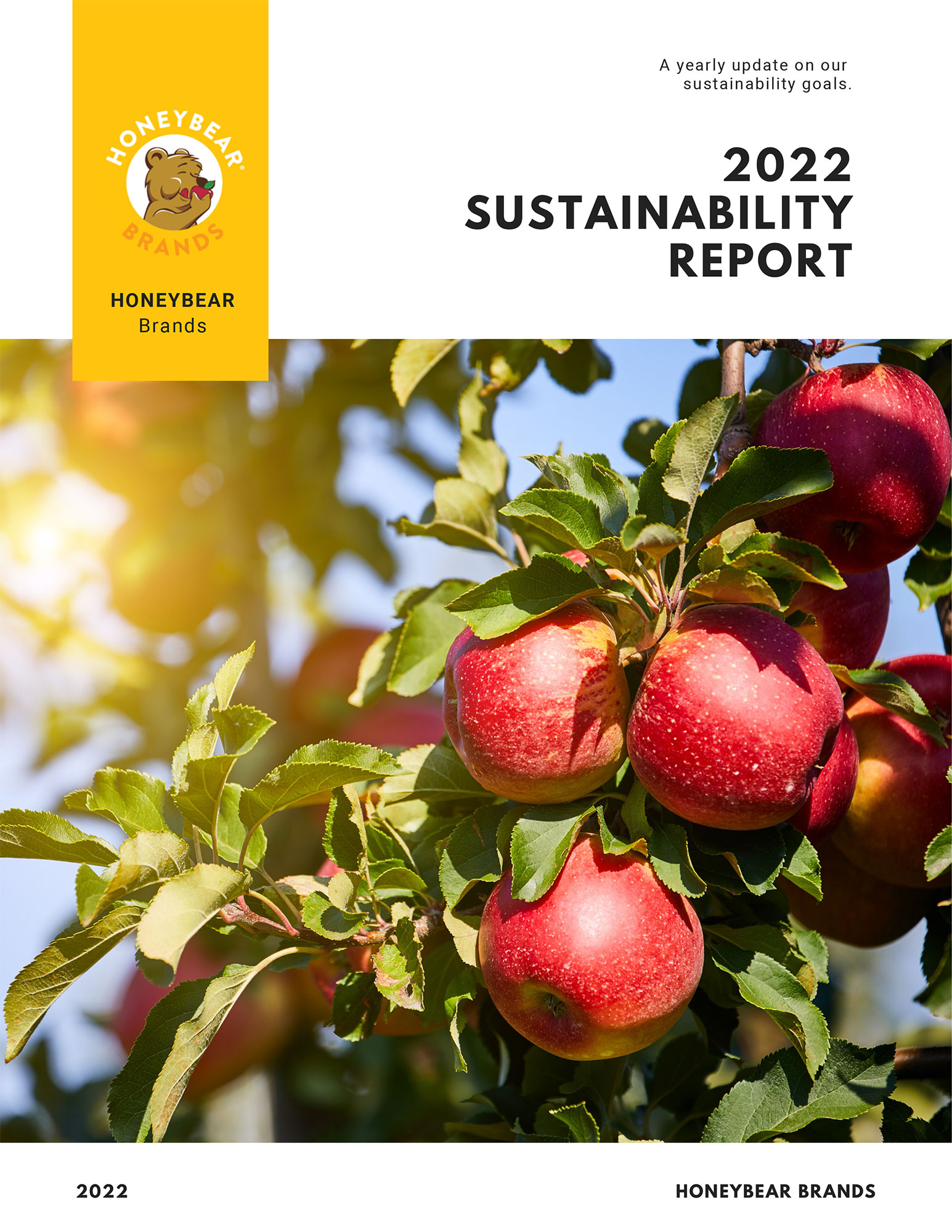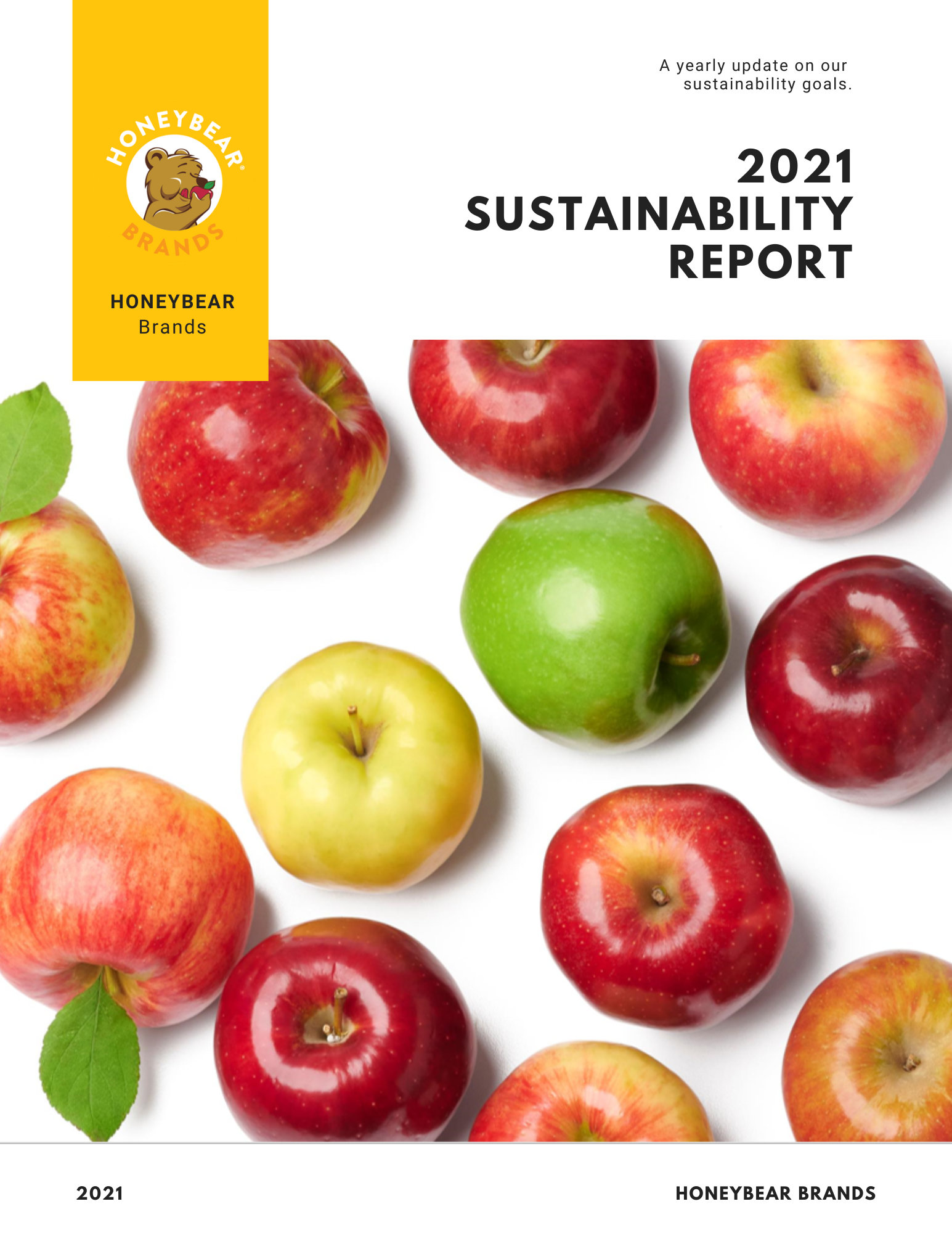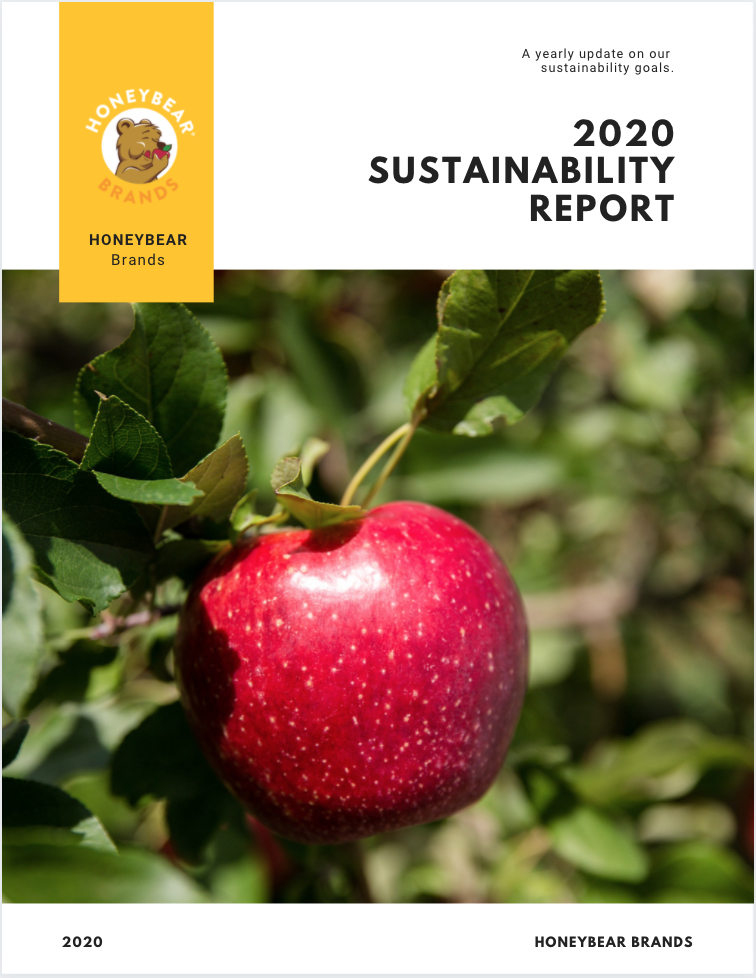Our sustainability journey began over ten years ago with the creation of the TruEarth certification, a label that highlights farmers’ dedication to water conservation, limited pesticide use, and a low-waste footprint. Through partnership with the IPM Institute of North America, we established a program that enable growers to produce top quality fruit, while reducing their ecosystem impact. Today, the TruEarth program encompasses all our growers in the Mississippi River Valley Region, and we are ready for more.
conservation
Strict practices conserve energy, water and limit the use of agricultural products
stewardship
Protocols to protect the land, the soil and the environment for today and future generations
habitat protection
Honey-bee and wildlife positive farming to protect bio diversity in our orchards
TRUEARTH PROGRAM
Truearth is a program we developed in partnership with the Institute of Pest Management, leaders in science-based work to help protect the agricultural environment. The protocols and growing standards set forth are an integral part of the promise and goals we have implemented to lead the industry to a more sustainable future.
conservation
Strict practices conserve energy, water and limit the use of agricultural products
stewardship
Protocols to protect the land, the soil and the environment for today and future generations
habitat protection
Honey-bee and wildlife positive farming to protect bio diversity in our orchards
Sustainable Farming
Sustainable growing practices to guarantee quality, conserve resources and protect the land for future generations
Sustainable Farming
Sustainable growing practices to guarantee quality, conserve resources and protect the land for future generations
Sustainability Goals
In order to take sustainability a step further, we’ve partnered with the Sustainable Food Group, an organization dedicated to making positive environmental shifts in the food system and supply chain. Together, we’ve created a sustainability plan with four additional focus areas: climate, food loss, packaging, and pollinators. In doing so, we hope to become part of the transparent and rapid change needed to heal our planet.
Climate
Reduce greenhouse gas emissions by 15% in Honeybear Brands’ operations by 2030, while simultaneously sourcing 100% of our facility electricity from renewable sources by 2025, and eventually achieving brand-wide carbon neutrality by 2040.
Food Loss
Achieve zero food waste (to landfill) from farm to retail by 2025. This will be done through waste diversion to cider, compost, charitable donations, and animal feed at a local farm.
Packaging
Use plastic-free packaging in all our branded products by 2030. Meanwhile we will begin offering plastic-free alternatives by 2025.
Habitat
Install 50 acres of pollinator habitat across the nation by 2025, while simultaneously implementing TruEarth pollinator conservation practices on 100% of our US source orchards.






